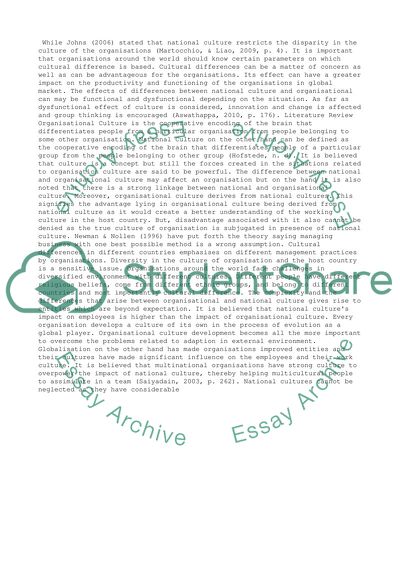Cite this document
(“Impact of National Culture on Organisational Culture Literature review”, n.d.)
Retrieved de https://studentshare.org/business/1450924-hr3010-2011-12-assignment-y-what-are-the-effects-of-differences-between-the-organizational-cultures-of-global-companies-and-t
Retrieved de https://studentshare.org/business/1450924-hr3010-2011-12-assignment-y-what-are-the-effects-of-differences-between-the-organizational-cultures-of-global-companies-and-t
(Impact of National Culture on Organisational Culture Literature Review)
https://studentshare.org/business/1450924-hr3010-2011-12-assignment-y-what-are-the-effects-of-differences-between-the-organizational-cultures-of-global-companies-and-t.
https://studentshare.org/business/1450924-hr3010-2011-12-assignment-y-what-are-the-effects-of-differences-between-the-organizational-cultures-of-global-companies-and-t.
“Impact of National Culture on Organisational Culture Literature Review”, n.d. https://studentshare.org/business/1450924-hr3010-2011-12-assignment-y-what-are-the-effects-of-differences-between-the-organizational-cultures-of-global-companies-and-t.


